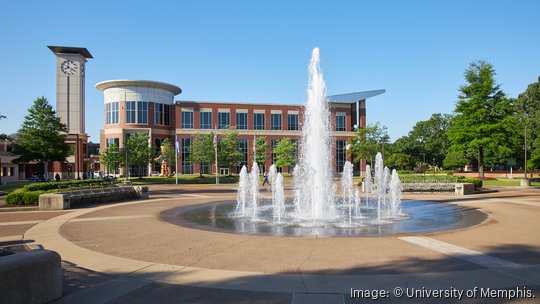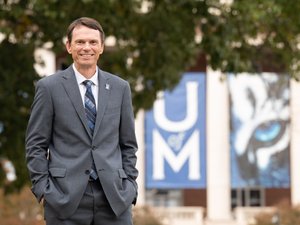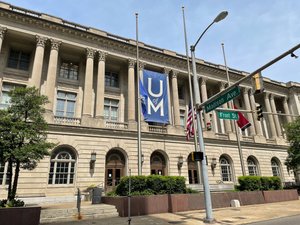
According to the Nature Conservancy, the Mississippi River Basin is the world’s fourth largest river basin, spanning 1.245 square miles. And across its footprint, it faces a variety of challenges — like urban and suburban sprawl, frequent flooding and uncontrolled water runoff, a lack of ecosystem services, and impacts of climate change.
Now, researchers have received funding to examine how these challenges connect to affect the environmental conditions of both living areas and their residents.
And that study is being led by a professor from the University of Memphis.
The Urban-Rural Systems Research Coordination Network has scored a $500,000 grant from the Dynamics of Integrated Socio-Environmental Systems program — part of the National Science Foundation (NSF) — to launch a five-year study. Charles Santo, Ph.D., a U of M professor and chair in the Department of City and Regional Planning, will lead a team of researchers that focuses on five metropolitan areas within the Mississippi basin: Memphis, Minneapolis-St. Paul, Davenport, Iowa, St. Louis, and Baton Rouge.
The challenges facing the basin tend to disproportionately affect vulnerable populations.
The research team is set to consider land policy issues that impact the urban-rural interface — the places where cities and suburban developments meet rural areas. These issues include land use and zoning, land use patterns, urban expansion plans, building designs and infrastructure, urban ecosystems, biodiversity, and climate adaptation.
The researchers’ goal is for the project to lead new regional policies and government actions that could create stronger, more sustainable environments for people living in the Mississippi River Basin and other similar regions.
The news comes as U of M looks to keep its designation as a top-tier research university. In December 2021, it gained R1 status from the Carnegie Classifications of Institutions of Higher Education, and the university now wants to both retain this status and become nationally known for its research.
Research dollars are playing a key role in this effort, and U of M’s faculty members have sought significant funding from major groups. Here’s some examples of research awards that went to U of M professors in February:
- Santosh Kumar, Ph.D., was awarded $1,029,078 from the National Institutes of Health.
- Christos Papadopoulos, DSc, was awarded $559,647 from the National Science Foundation.
- Stephanie Ivey, Ph.D., was awarded $195,002 from the U.S. Department of Transportation, $55,000 from the Transportation Research Board with the National Academy of Sciences, and $38,000 from the Women's Foundation for a Greater Memphis.
- Matthew Smeltzer, Ph.D., was awarded $125,147 from the Baptist Cancer Center, with the National Institutes of Health.
Bolstering its research enterprise is one of U of M’s seven goals in its 2023-2028 strategic plan, which was announced on March 1.
The university wants to hire and enroll more research staff and doctoral candidates, increase external partnerships, and become a driver for economic development in the region by leveraging those partnerships. The institution also plans to make its research more visible.









